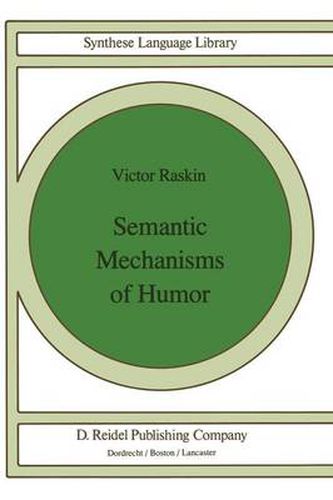Readings Newsletter
Become a Readings Member to make your shopping experience even easier.
Sign in or sign up for free!
You’re not far away from qualifying for FREE standard shipping within Australia
You’ve qualified for FREE standard shipping within Australia
The cart is loading…






This title is printed to order. This book may have been self-published. If so, we cannot guarantee the quality of the content. In the main most books will have gone through the editing process however some may not. We therefore suggest that you be aware of this before ordering this book. If in doubt check either the author or publisher’s details as we are unable to accept any returns unless they are faulty. Please contact us if you have any questions.
GOAL This is the funniest book I have ever written - and the ambiguity here is deliberate. Much of this book is about deliberate ambiguity, described as unambiguously as possible, so the previous sentence is probably the fIrst, last, and only deliberately ambiguous sentence in the book. Deliberate ambiguity will be shown to underlie much, if not all, of verbal humor. Some of its forms are simple enough to be perceived as deliberately ambiguous on the surface; in others, the ambiguity results from a deep semantic analysis. Deep semantic analysis is the core of this approach to humor. The book is the fIrst ever application of modem linguistic theory to the study of humor and it puts forward a formal semantic theory of verbal humor. The goal of the theory is to formulate the necessary and sufficient conditions, in purely semantic terms, for a text to be funny. In other words, if a formal semantic analysis of a text yields a certain set of semantic proptrties which the text possesses, then the text is recognized as a joke. As any modem linguistic theory, this semantic theory of humor attempts to match a natural intuitive ability which the native speaker has, in this particular case, the ability to perceive a text as funny, i. e. , to distinguish a joke from a non-joke.
$9.00 standard shipping within Australia
FREE standard shipping within Australia for orders over $100.00
Express & International shipping calculated at checkout
This title is printed to order. This book may have been self-published. If so, we cannot guarantee the quality of the content. In the main most books will have gone through the editing process however some may not. We therefore suggest that you be aware of this before ordering this book. If in doubt check either the author or publisher’s details as we are unable to accept any returns unless they are faulty. Please contact us if you have any questions.
GOAL This is the funniest book I have ever written - and the ambiguity here is deliberate. Much of this book is about deliberate ambiguity, described as unambiguously as possible, so the previous sentence is probably the fIrst, last, and only deliberately ambiguous sentence in the book. Deliberate ambiguity will be shown to underlie much, if not all, of verbal humor. Some of its forms are simple enough to be perceived as deliberately ambiguous on the surface; in others, the ambiguity results from a deep semantic analysis. Deep semantic analysis is the core of this approach to humor. The book is the fIrst ever application of modem linguistic theory to the study of humor and it puts forward a formal semantic theory of verbal humor. The goal of the theory is to formulate the necessary and sufficient conditions, in purely semantic terms, for a text to be funny. In other words, if a formal semantic analysis of a text yields a certain set of semantic proptrties which the text possesses, then the text is recognized as a joke. As any modem linguistic theory, this semantic theory of humor attempts to match a natural intuitive ability which the native speaker has, in this particular case, the ability to perceive a text as funny, i. e. , to distinguish a joke from a non-joke.